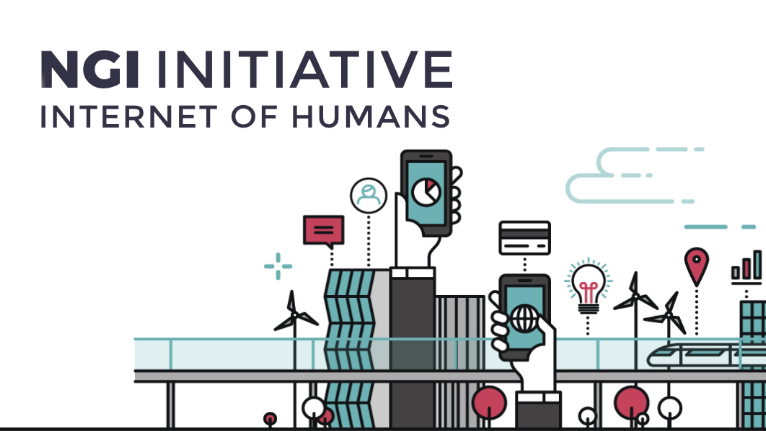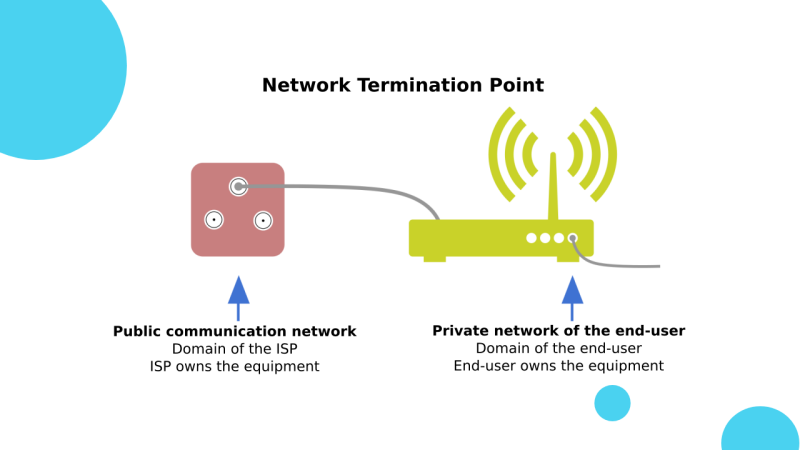Linqa: a Free Software bilingual collaboration platform developed with public money
vendredi 26 juillet 2024 à 01:00Linqa: a Free Software bilingual collaboration platform developed with public money
Linqa is a bilingual collaboration platform whose code is Free Software and developed using public money. It helps the daily work of the Franco-German Forum for the Future, a public institution that fosters collaboration among actors in France and Germany. We dive into the roots of Linqa with the people behind it.

To learn how Linqa started and how it works we talked with the CEO of the organization that commissioned this platform, Lale Eckardt, the co-founder of the company that developed it, Juergen Neumann, and Linqa Project Lead, Robin Denz.
FSFE: First of all, can you explain what is Linqa?
Juergen Neumann (DMX co-founder*): Linqa is a simple web-based whiteboard application with automatic translation between two languages. Editors can create and upload bilingual content, e.g. notes or PDFs, and arrange it within workspaces. Each workspace has dedicated members, who can discuss and comment on these contents in their native language in a chat panel. All content is visible in both languages and can be re-edited to manually improve the automatic translation.
*DMX develops dmx – the context machine, a Free Software semantic data platform. DMX developed Linqa for the Franco-German Forum for the Future.
FSFE: What brought you to develop a platform like Linqa?
Robin Denz (Linqa Project Lead): The development of Linqa was spurred by the necessity to enhance collaboration steered by the Franco-German Forum for the Future. With the aim of strengthening bilateral relations and promoting sustainable transformation, we facilitate dialogues among local initiatives, public administrators, civil society, and academia. In co-creative processes with a wide array of experts, we elaborate actionable policy recommendations for both governments. For this, we needed a platform that could transcend language barriers and streamline our complex work processes. Partnering with DMX to create Linqa allowed us to tailor a solution that meets our specific needs.
FSFE: Compared to fully proprietary solutions, which is the main benefit of this tool?
Juergen Neumann: Linqa provides an easy-to-use solution to communicate and collaborate across language barriers in bilingual teams. While many other platforms are cloud-based services that tend to make money out of the users’ data, Linqa is Free Software and can be self-hosted. The automatic translations in Linqa are currently done using DeepL’s EU-based translation service (which is proprietary, ndr).
FSFE: DeepL is proprietary. Do you have any plans to change this dependency? Which option do you see to address this?
Juergen Neumann: The fact that Linqa depends on DeepL was driven by the client's requirements for very accurate automatic translations in alignment with data protection requirements, as we found them in their public tendering back in 2021. Unfortunately, by that time we did not know of any comparable and suitable Free Software based option to replace their service. Luckily we can find promising candidates these days. We are in the process of evaluating LibreTranslate as an alternative service.

FSFE: Why did you decide to develop a platform whose code is Free Software?
Juergen Neumann: Since the founders of DMX Systems have been Free Software advocates early on, we have chosen a Free Software license from the very beginning. When you start to develop code, you immediately understand that writing software is all about sharing knowledge. That’s why we think that the resulting code should be licensed as Free Software as well. In addition to that, we think that Free Software, Open Standards and open interfaces are the only way to effectively avoid a vendor lock-in. They can be seen as catalysts to encourage people to join efforts. We think this is especially relevant for public administrations spending public money. That’s why we always try to convince our clients to stay the course and join the Free Software environment with their requirements and investments.
The transparency of the code and algorithms allows to investigate how the software was made and how it works. The code is no black box: improvements by others are not only possible, but explicitly welcome.
FSFE: What is the main benefit of LInqa being developed as Free Software for the Franco-German Forum for the Future?
Robin Denz: The main benefit of developing Linqa as Free Software lies in its potential for widespread adoption and adaptation. The Franco-German Forum for the Future has a very specific use of the Linqa platform, which follows from our particular methodology and the people we work with. We get exactly what we need with Linqa but still its potential goes beyond our specific use case. So, I am excited and curious to see how other organisations can make use of its different functions in other fields than the one of Franco-German sustainable governance. For instance, in the humanitarian sector. By making the platform Free Software, we empower other non-profit actors and organizations to leverage its capabilities for their specific domains and requirements. This not only enhances its utility beyond our immediate use case but also encourages a community of users to contribute improvements and innovations, enriching the platform for all users.
FSFE: Which role do you think Free Software has in developing this kind of projects, commissioned with public money?
Robin Denz: Free Software plays a crucial role in projects like Linqa by fostering transparency, accessibility, and community-driven innovation. Knowing that a software like Linqa can benefit a wide array of other non-profit actors can act as a strong legitimization for putting public money in this kind of projects. For us, it meant to be able to customize and extend the platform according to our evolving needs without being constrained by proprietary limitations. Moreover, the ethos of Free Software aligns with our mission of promoting collaboration and knowledge sharing across borders, ensuring that our tools remain inclusive and adaptable to diverse contexts.
FSFE: What challenges did you have to face when developing Linqa?
Juergen Neumann: The first challenge is about licensing: Since there are very many different software licenses, it can be difficult to find out if you can actually publish your code - including the external libraries – under the terms and conditions of your desired license.
The second challenge is about money: Still too few individuals and organizations understand the challenges of the Free Software ecosystem. To develop and maintain good code, you need skilled people who all need to make a living. If individuals and especially organizations were willing to spend more money on Free Software instead of proprietary software, it would be beneficial to all.
Also, for us as a company, finding investors often feels much harder, because our business model does not include intellectual property but is free and open to all.
FSFE: What would you say to other companies that are not aware of the benefits of Free Software?
Robin Denz: I would emphasize that choosing Free Software for your project not only aligns with principles of openness and collaboration but also offers practical advantages. It can foster innovation through collective intelligence and enable rapid customization to meet specific needs. Moreover, Free Software encourages ethical considerations such as data privacy and security, which are increasingly critical in today's digital landscape. All in all, Free Software helps empowering organizations to build robust, community-supported solutions that can benefit society as a whole.

FSFE: Some years ago, the FSFE launched the “Public Money? Public Code!” initiative. With it we ask that software paid by taxpayers’ money should be released as Free Software. What is the role of Free Software in an organisation like the Franco-German Forum for the Future?
Lale Eckardt (Franco-German Forum for the Future CEO): The Franco-German Forum for the Future is rooted in the Treaty of Aachen signed by the two governments in 2019. We are thankful that the Federal Ministry of Education and Research (Bundesministerium für Bildung und Forschung, BMBF), which finances our work on the German side, was supportive of an experimental approach. During the COVID-19 pandemic, we decided against jumping to conclusions and developing a run-of-the-mill platform just to tick off digital engagement. Instead, we took our time trying to understand where in our specific work and dialogue process a digital tool can offer significant value and how. With Linqa we have a tailored tool whose strength lies in its specificity and simplicity. And I think that is why Linqa is gathering interest from other organisations as well.
FSFE: How was the procurement process regarding Linqa? Was there a public tender or direct contact with DMX? Was it easy to procure Free Software? Do you think is there a way to make it simpler to help the procurement of Free Software tools in public administration?
Lale Eckardt: Of course, we put the development of our platform out to public tender, with DMX submitting the most competitive offer. Free Software development was not specified in the tender but emerged as an idea through our cooperation with DMX. The main challenge for procurement processes of this complexity is finding a middle ground between specificity and openness. On the one hand, as the contracting authority, we need to be as specific as possible about our needs. This ensures fair competition and reliable offers. On the other hand, we wanted to remain open to learning from and with the service provider, as well as critically assessing our hypotheses during the development process. To balance these two aspects, we aimed to clearly define the functionalities we envisioned for the platform without fixing too many technical details.
FSFE: What would you say to other public administrations that want to develop software? Would you recommend them to follow the Public Money? Public Code! principle?
Lale Eckardt: If the money spent on developing software from within public administration or in publicly funded project like ours can not only make public administration more efficient but also, through its availability as Free Software, strengthen our digital infrastructure in the public interest, than that is good news for our democracies!
The “Public Money? Public Code! (PMPC)” initiative aims to establish Free Software as the standard for publicly funded software. Promoted by the Free Software Foundation Europe, PMPC is supported by over 200 organizations and administrations, and more than 35.000 individuals. You can also support the campaign signing the Open Letter and with a donation to support this work.



 Orange questioned the Belgian regulator
decision’s regarding the position of the NTP, which introduced Router
Freedom in the country. Source: BEREC
Orange questioned the Belgian regulator
decision’s regarding the position of the NTP, which introduced Router
Freedom in the country. Source: BEREC
